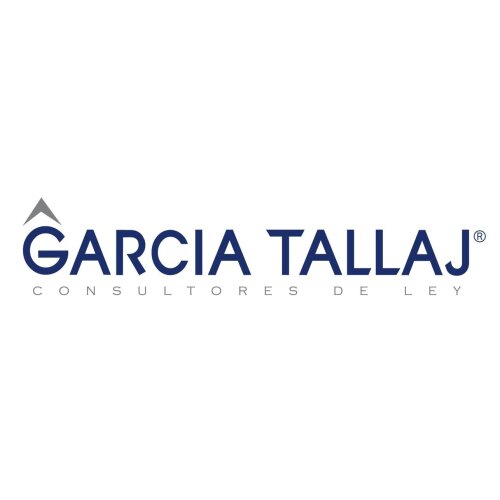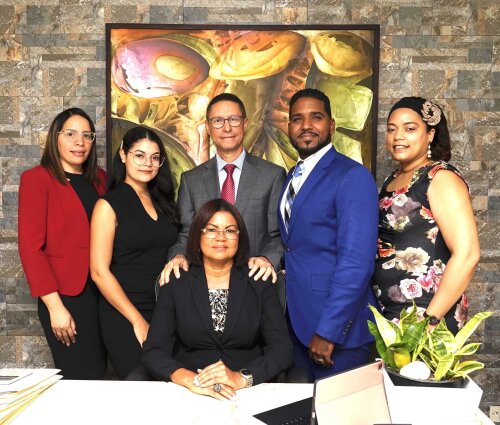Best Private Equity Lawyers in Sosua, Cabarete
Share your needs with us, get contacted by law firms.
Free. Takes 2 min.
List of the best lawyers in Sosua, Cabarete, Dominican Republic
About Private Equity Law in Sosua, Cabarete, Dominican Republic
Private equity is a form of investment that involves pooling funds from individuals, institutions, or companies to acquire stakes in businesses that are not publicly traded. In Sosua and Cabarete, located in the vibrant Puerto Plata province of the Dominican Republic, private equity opportunities are growing due to a developing economy, tourism growth, and expanding sectors such as real estate, hospitality, and services. Private equity transactions in the region typically include buyouts, venture capital, and growth capital investments. Proper legal structuring is crucial to navigate the market and regulatory environment in the Dominican Republic.
Why You May Need a Lawyer
Engaging with private equity in Sosua or Cabarete often involves complex legal and financial arrangements. You may need a lawyer for the following common situations:
- Establishing or structuring a private equity fund or investment vehicle in compliance with Dominican law.
- Conducting due diligence on local businesses, real estate developments, or hospitality projects before investing.
- Negotiating and drafting term sheets, shareholder agreements, or other investment contracts.
- Ensuring compliance with local tax, labor, and corporate regulations.
- Navigating foreign investment requirements and government approvals.
- Protecting your interests during dispute resolution or exit strategies.
- Assisting with regulatory filings or reporting duties associated with private equity activity.
Local Laws Overview
Private equity operations in Sosua and Cabarete fall primarily under general corporate, commercial, and securities law as regulated by the Dominican government. While there is no specific "private equity law," several key legal aspects are important:
- Foreign Investment Law - The Dominican Republic welcomes foreign investment, requiring registration of foreign capital with the Central Bank for certain protections.
- Corporate Structuring - Most investments use Sociedad Anónima (SA), Sociedad de Responsabilidad Limitada (SRL), or similar corporate vehicles for liability protection and flexible ownership arrangements.
- Taxation - Investors need to understand local tax liabilities, capital gains, and potential tax incentives granted to foreign investors or special sectors.
- Real Estate and Hospitality - The property sector is regulated by local property law, and there are special rules when investing in tourism and hotel projects.
- Anti-Money Laundering (AML) - Compliance with AML policies is mandatory to prevent illicit activity within financial transactions.
- Labor Law - For portfolio companies operating in Dominica, local labor laws on contracts, benefits, and employee rights are relevant.
Having local, experienced legal counsel is strongly recommended to address these matters and avoid costly pitfalls.
Frequently Asked Questions
What is the minimum investment required for private equity in the Dominican Republic?
There is no statutory minimum investment, but certain investment vehicles or sectors may have recommended or customary minimums. Discuss your investment goals with a legal advisor.
Can foreigners own shares in Dominican companies?
Yes, foreigners can fully own Dominican companies. There are no restrictions for most sectors, though registration and reporting are required.
What legal structure works best for a private equity investment?
The Sociedad de Responsabilidad Limitada (SRL) and Sociedad Anónima (SA) are commonly used due to their flexibility, liability protection, and ease of share transfer.
How does due diligence work for investments in Sosua or Cabarete?
Due diligence includes legal review of the target company’s corporate records, licenses, property titles, liens, permits, tax compliance, and potential litigation risks.
Are there tax benefits for foreign private equity investors?
Certain sectors, such as tourism, may offer tax incentives or exemptions. Eligibility depends on factors like investment size, location, and compliance. Legal advice is crucial.
What are the main risks for private equity in this region?
Risks include regulatory changes, unclear property rights in some areas, fraud, and market volatility. Proper legal safeguards and thorough due diligence can mitigate most risks.
Is business conducted in English or Spanish?
Most legal documents and business transactions are conducted in Spanish. Non-Spanish speakers should hire bilingual legal counsel to navigate contracts and negotiations.
How can disputes be resolved?
Disputes are typically resolved in Dominican courts or through arbitration, if stipulated in the contract. Arbitration is common for foreign investors seeking greater neutrality.
Can profits be repatriated abroad?
Yes, profits and capital can be repatriated after fulfilling tax and legal requirements. Registering your investment with the Central Bank can ease this process.
How do I find a reputable lawyer in Sosua or Cabarete?
Seek recommendations, check professional affiliations with the Colegio de Abogados de la República Dominicana, and choose attorneys with experience in corporate and investment law.
Additional Resources
- Superintendencia del Mercado de Valores (SIV) - The Dominican Republic’s securities market regulator.
- Central Bank of the Dominican Republic - For foreign investment registration and repatriation guidance.
- ProDominicana - The Export and Investment Center provides support to foreign investors.
- Colegio de Abogados de la República Dominicana - The Dominican Bar Association, for legal professional verification.
- Chambers of commerce and local business associations in Puerto Plata province for networking and updated industry insights.
Next Steps
If you are considering private equity investment or involvement in Sosua, Cabarete, or the wider Dominican Republic, start by defining your investment goals and gathering preliminary information about your target sector or company. Next, identify and consult with a reputable attorney or law firm with experience in private equity, corporate law, and cross-border transactions in the Dominican Republic. A legal consultation will help clarify specific requirements, conduct due diligence, and ensure all agreements are properly structured and compliant with local regulations. Consider visiting local law offices or contacting professionals recommended by business organizations or embassies.
Preparing your questions and documentation in advance will help the legal professional advise you efficiently and begin the investment process smoothly and with confidence.
Lawzana helps you find the best lawyers and law firms in Sosua, Cabarete through a curated and pre-screened list of qualified legal professionals. Our platform offers rankings and detailed profiles of attorneys and law firms, allowing you to compare based on practice areas, including Private Equity, experience, and client feedback.
Each profile includes a description of the firm's areas of practice, client reviews, team members and partners, year of establishment, spoken languages, office locations, contact information, social media presence, and any published articles or resources. Most firms on our platform speak English and are experienced in both local and international legal matters.
Get a quote from top-rated law firms in Sosua, Cabarete, Dominican Republic — quickly, securely, and without unnecessary hassle.
Disclaimer:
The information provided on this page is for general informational purposes only and does not constitute legal advice. While we strive to ensure the accuracy and relevance of the content, legal information may change over time, and interpretations of the law can vary. You should always consult with a qualified legal professional for advice specific to your situation.
We disclaim all liability for actions taken or not taken based on the content of this page. If you believe any information is incorrect or outdated, please contact us, and we will review and update it where appropriate.









